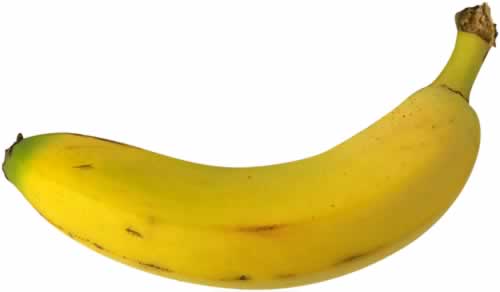Tuesday, May 3, 2011.
The Galatoire's Heads Visit. Banana Man.
No theme united the guests on today's Round Table radio show. Our first visitor was John Georges, who ran unsuccessfully for mayor in the last election. During the campaign, he became one of the new owners of Galatoire's, with new majority owner Todd Trosclair.
His description of how that came about made it sound almost random. Basically, the family approached Trosclair and asked him to buy in. Trosclair didn't know much about Galatoire's, so he asked Georges about it. Then Georges got into the deal. No skullduggery, no intrigue, no tragedy. And the new owners are so far sticking by their promise to avoid changes in the restaurant other than the usual evolutionary ones.
Georges moved on to a story about his family's olive business in Greece. His brother and uncle are the involved parties. "My uncle has deals with a number of olive growers," he explained. "Who they are and which trees are involved is a total secret. He knows which ones produce the kind of olives he wants. He pays them half up front, half of delivery. And he takes it from there." Apparently the olives and the olive oil are very good, because the guests in the studio were making sounds of great enjoyment. (I was stuck at home, a disembodied presence.)
Octavio Garcia and his son Steve were there, on the occasion in two days of Cinco de Mayo. Octavio and his wife Dorita started Casa Garcia back in 1984; Steve operates the family's branch in Mandeville. I was surprised to learn what brought Octavio to New Orleans. His brother was running Pancho's here, and Octavio came to help out. He decided he liked the city, and wound up opening his own restaurant.
Pancho's? We discussed running up the all-you-can-stand flag. But not for long.
Also in the room was John Caluda, who I have not seen in a long time. He was the chef at Flagons when it first opened in 1983. Then he managed the Royal Orleans Hotel's pastry shop--an excellent operation which is much attenuated now. "Every hotel made its own croissants, bread, desserts, everything," he said. "Now you hardly see that at all. Everything comes in a box."
Caluda opened the Coffee Cottage on Metairie Road in the 1990s, and continued making pastries from scratch. Despite the name, it only briefly was a coffeehouse. Its menu from the outset was like that of a limited neighborhood café. It evolved into a catering business, and that's what brought him here today. His booth at the Jazz festival sells, among other things, the popular crawfish strudel.
"We make our own phyllo," he surprised me by saying. All I know about phyllo is that Greek ladies get together to make, fold over, and roll out the thin sheets of pastry a million times, in a process that could only be considered short in comparison with all of Greek history.
It's not that hard, John said. "We start with a pastry sheet that covers a table like a tablecloth. Then we put the crawfish stuffing into a form, roll it up, and cut it. We'll make 10,000 of them." Those are the numbers you see at Jazz Festival. It's a risky business, because what do they do with all that pre-made product if it rains really hard and nobody comes? Bath time.
The guest who stole the show was Bob Post. For forty years, he was the head guy running the New Orleans operation of Dole Food Company's banana importing division. That was the successor to Standard Fruit, one of the two big outfits that made New Orleans the biggest port for bananas in North America.

Bob appears to know everything there is to know about bananas. "The problem with the bananas that were grown in the early days was that the plants were very tall, and easily blown down by wind," he said. "Then the Cavendish banana was developed. It had a shorter stalk and was easier to pick. The problem was that it had a thin skin, and bruised easily when they were transported in bunches. My company developed the practice of putting the bananas in boxes at the plantation, and then shipping them. That was introduced in 1960, and it revolutionized banana distribution. The same box is used today."
The reason he was here was that a major convention of produce marketers is in town. And they just donated salad bars to thirty-two New Orleans schools, in an effort to bring more fresh fruits and vegetables to kids who might not get them all the time.
And he had dozens of other stories. We kept going back to Bob throughout the three-hour show, and he always had another unique, unheard-of perspective on bananas.
Melvin Rodrigue relieved John Georges as the Galatoire's representative in the show's last two hours. So what about the new chef, since Brian Landry left to go to work for the Louisiana Seafood Marketing Board? "That will be a great thing for Brian, and will be great for Louisiana seafood," Melvin said. "We're happy for him." Is the new chef a Jesuit boy, I wanted to know. "Yeah, what about that? asked bananaman Bob Post, a Blue Jay from way back.
"No," admitted Melvin. "Gerry Middleton was Brian's sous chef, and he'll take over as executive chef." Another young guy--the third such. But that seems to have worked all right.
Ah. . . but what is he cooking for Cinco de Mayo?
It has been over three years since a day was missed in the Dining Diary. To browse through all of the entries since 2008, go here.